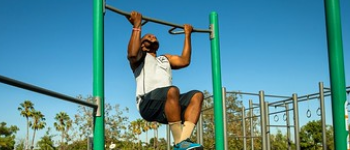Get Out and Play: 5 Ways Playgrounds Keep Your Child Healthy
Dec 20







Feb 11
Albert Einstein said, “Play is the highest form of research.” Even back then, scholars were aware of the many benefits that playing has on youngsters. Remember all the good times you had as a child climbing across monkey bars, going down the slide, and having a blast with your friends outside. The playground definitely benefits all, but developing children the most.
Running, jumping, and climbing are just a few gross motor skills that playgrounds allow for. We know how important it is for children and adults alike to get their hearts pumping and limbs moving. In the United States, the percentage of children and adolescents with obesity has more than tripled since the 1970s. Getting some daily exercise on the playground can combat this trend.
On the playground, children learn vital interpersonal skills such as sharing and turn-taking, communication, conflict resolution, and recognizing emotions within and in others. Play brings youngsters together to use their imagination and be free to have fun. Wasn’t recess your favorite subject in school too?
Playgrounds should be accessible and safe for children of all skill level, and the equipment should reflect this. Appropriate inclusive structures address the needs of the whole child, regardless of any disabilities. Let’s face it- the joy of playing does not discriminate!
Nature play is a hot commodity these days with parents and educators encouraging children to interact with a playground that mimics nature. Being outside in the fresh air, perhaps surrounded by trees and other earthy materials, allows children to discover new manipulatives to build with (e.g. rocks, twigs, sand, etc.) and use their senses while exploring their environment.
It’s evident that playgrounds have many benefits from boosting children’s physical health to helping them become one with nature. Research and professionals agree that play supports the different areas of development. So go ahead and have some outside fun!